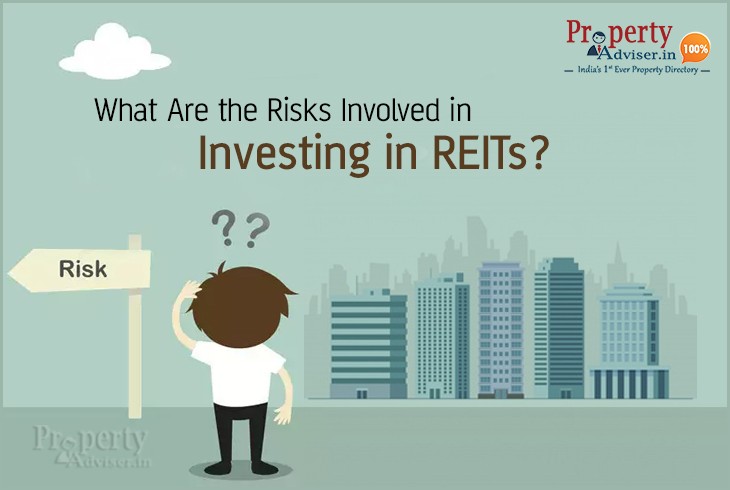With buying specialized Real Estate Investment Trusts, you can own real estate and participate in the growth of a specific sector. You can hold several commercial real estate properties by buying Real Estate Investment Trusts India (REIT) shares. In addition, REITs are easy to buy and sell, since most of them operate in public exchanges, reducing some of the traditional inconveniences of real estate.
Why Invest In REIT?
REITs have a high capacity to generate dividend income along with the appreciation of capital, which makes them an excellent counterweight for stocks, bonds and cash. A Real Estate Investment Trust is a good option for those who wish to invest in income-generating properties. A REIT is a system that owns and manages apartment complexes, office buildings, warehouses and other types of rental properties. There are different advantages of owning shares in a REIT. It is a very transparent and liquid way to access the real estate sector.
The minimum investment capital is much lower than that of direct investment. Depending on the countries, they may offer interesting tax advantages. It is a much more passive investment and requires much less time than direct real estate investments. Returns may be high compared to other types of investments, and in this REIT, you must pay a minimum of 90% of its taxable income to investors. The Trust has the option to pay more, but according to financial regulations, you cannot pay less than that amount.
REITs also allow one to invest in real estate without the difficulties of making real estate purchases. Shareholders should not worry about property taxes, insurance, and maintenance, etc. Like all investments, REITs also have some risk that lies in the vulnerability to a fall in the real estate market. Before investing, you have to know how to invest in REIT and should balance the various complexities and risks associated with these investments.
Some of the risks involved in investing in REIT are as follows.
Tax Consequences
In REIT, the main risk involved is with tax plans as there is no clear explanation of tax payments for investors. The distribution of income made from present or saved earnings are usually taxed as ordinary income. If dividends change, the tax rates may also change and are imposed, ranging from 15% to 20% depending on the income earned. So before REIT investing, you should be aware of the tax rates.
Valuation Issues
REITs do not have a public market, and it takes a lot of time to be listed on a national stock exchange or liquidated. Even if REIT is liquidated, there is no guarantee that its value will have risen, it may lower or lose all its value. Also, valuing REITs can be complicated. Due to its irregularity, many factors affect prices, real estate assets, expenses, capital cost and more which could result in huge loss.
Limitation and Redemption Price
REIT offers limited shares as they have to obtain before settlement. Some times they are charged a higher amount than ordinary shares. Also, before they can be purchased, they may require you to hold the REIT for a specified period. Repayment programs can be terminated or adjusted, so investors should not depend on them. The redemption program may allow you to sell your shares before a liquidity event, but the redemption price will probably be less than the purchase price.
Expensive Fees
The sales and expenses in REIT cannot exceed 15 per cent of the investment amount. When there is no trading, the cost of its fees can be very high. The additional offer and organization costs are termed as issuer costs which are also paid from the purchase money. State regulations limit the total of issuer costs does not be more than to 15 per cent, and selling compensation does not exceed 10 % as compared to the invested amount.
Properties Are Not Listed
Most non-tradable REITs start without specifying what properties they are going to buy. Others may specify a part of the properties they plan to acquire, or they may be at various stages of acquisition. It would be less risky for the investor if he has the opportunity to investigate the quality of the properties before investing. Therefore, REITs must specify the properties they will buy or that have been acquired.
Insufficient Diversification
Although REITs, as an investment class, can help diversify a portfolio. By putting all of your real estate investments in just one REIT, there will be a risk of insufficient diversification. Even in the case of a well-diversified real estate portfolio, there are risks associated with the real estate market as a whole and any specific subset of the real estate market in which a particular REIT is concentrated.
Investors should be careful of representations offering simple reasons to invest in REITs. Representations can provide high returns and stability while ignoring the lack of liquidity, rates and other product risks. Investors should ask about fees, other charges and the recipients to whom the REIT is recommending. Also, a review of the brochure and the booklet supplements is essential to reduce risks. It is vital to understand the different specific liquidity events of the REITs under consideration. Therefore, investors should analyze well the type of properties and the geographical location of the properties that are part of their portfolio. To reduce risk, as in many cases, it is best to diversify between REITs, by product, by type of asset or by geographical area.
Conclusion
REITs are a class of assets that, being variable income and belonging to the general market, we can separate from stocks and bonds. They are the easiest and most liquid way to participate in the real estate business. Their low correlation with general stocks and bonds offers them special appeal in long-term portfolios.
They are a great tool to fight against short and medium-term inflation. Due to the income generated by REITs through dividends, it makes this product a very attractive investment instrument. But let's not forget to consider the fundamentals, risks, diversification, and that all dividends and capital gains are subject to the payment of taxes.
Are you interested to invest in residential real estate in Hyderabad? Visit PropertyAdviser.in, India’s first-ever real estate property directory helping many investors to find the best home that suits their requirements. Pave the easy way to reach your dream home in Hyderabad and lead a happy lifestyle.
By: Shailaja K














